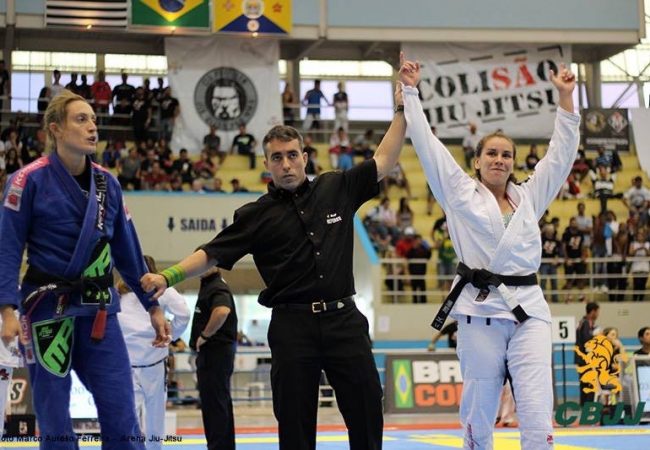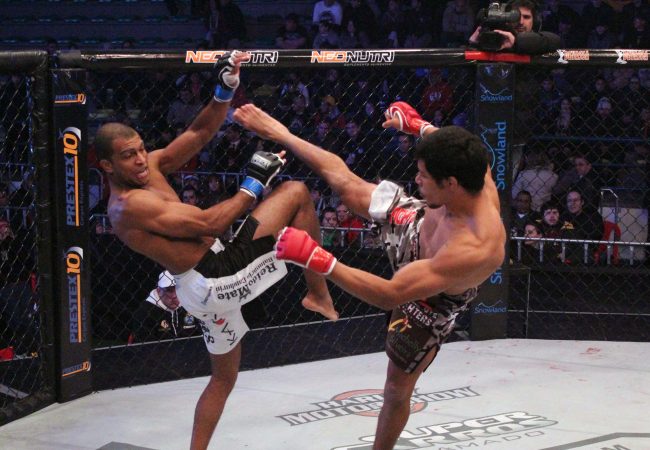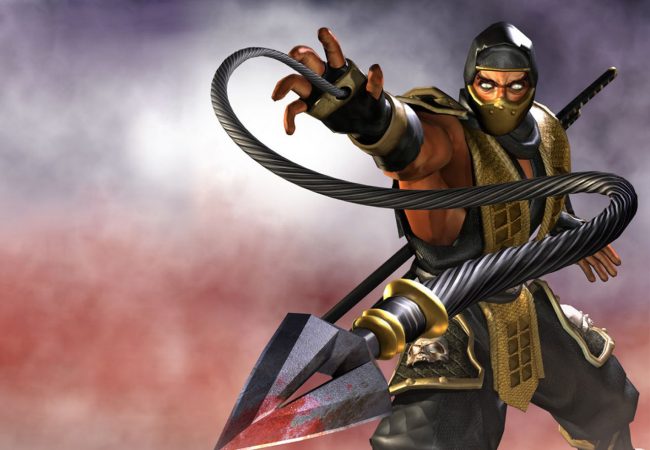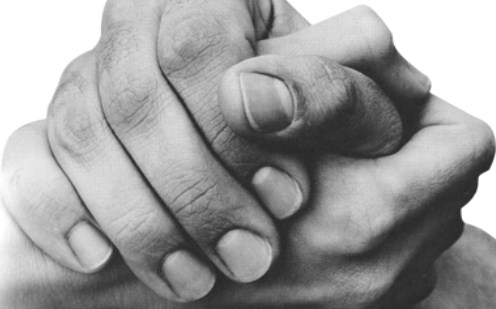
Rodrigo Totti refereeing a recent BJJ match. CBJJ
Black-belt Rodrigo Totti, a renowned ref and experienced teacher in Rio de Janeiro, often hears questions on rules from friends, students and coaches.
At the request of Graciemag, Totti cleared up the five most frequent questions he hears when he has a break from conducting fights at events like the BJJ Worlds. Read on and make sure to ask your own question in the comments.
Question: To score the advantage from half-guard, do I need to hug the head?
Answer: No, there is no need to hug the head to score the advantage. The ref grants the advantage as soon as the athlete gains the control of the position. What is most common is to gain the half-guard hugging the head, but there are other ways to exert control on top from the half-guard without need to hug your opponent’s head.
Q: Can the open guard-playing fighter be penalized for stalling?
A: Yes. Lack of combativeness is determined by not attempting to evolve one’s positions in the match, and also by stopping one’s opponent from doing so. It is indeed possible, then, for the athlete to be playing open guard and still preventing — through grips and an excessively defensive posture — their opponent from making progress.
Q: Does every defense against a finish yield an advantage for the attacker?
A: Not necessarily. The athlete will score an advantage when they apply a submission attempt that actually exposes their opponent to real danger — that is, when they almost succeed in finishing.
Q: Must the athlete who sweeps or takes down, but lands outside the fight area, always score the two points?
A: No. The fact that the move began in the fight area does not guarantee the points. In order to score with a sweep or takedown, one must stabilize the position for three seconds. When the end of the move happens outside the fight area, there is no way to start counting that time. The fight must be paused and then resumed at the center of the mat, with both athletes standing.
Q: When the fight is a tie, is the winner the one who last scored?
A: No. Anytime there is a tie, there is that expectation surrounding the referee. Many fans argue that the winner should be the fighter who was on top at the end, or whoever last pulled guard, or, commonly, whoever last scored a point or advantage. None of that is decisive. To determine the winner, the ref must observe which fighter was more offensive throughout the entire fight, and who got closer to achieving positions that could have led to scoring or finishing.



